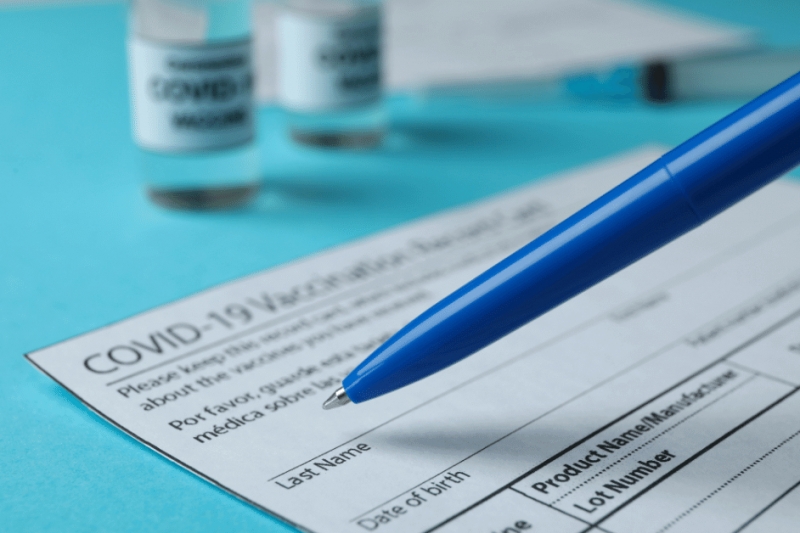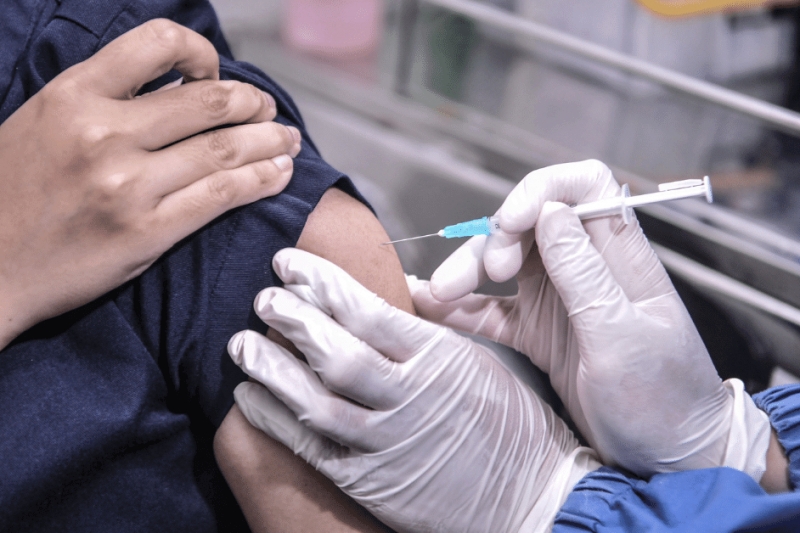If I could earn a thousand dollars for every post of vaccination cards I see online, then I should have at least a hundred thousand bucks by now. I’m not even kidding.
Sharing photos of vaccination cards once was a “cool” thing to do. People looked at getting vaccinated amid the pandemic as a milestone; similar to hopping on your first flight with a photo of you holding your passport, or graduating from university where posing with your diploma is the norm. Then, more people started doing it. As this went on, everyone else thought they should post their vaccination document, too, unknowingly making themselves prey to a growing cyber crime that relies on these types of posts to prosper.
Also read: The Most Insensitive Things Travellers Do During a Global Pandemic
Why you should avoid sharing vaccination cards online

Image credit: atlasstudio via Canva Pro
Remember when there was a call for people to stop sharing their boarding passes on social media? This case is one and the same. Apparently (albeit unsurprisingly), scammers have emerged to take advantage of vaccination card posts. Specifically, by using the personal information written on the paper in a number of criminal offenses. But perhaps the most alarming one is identity theft. The outcome? We’re seeing even more of these vaccination cards in the online world, but fake ones. Not to mention, unauthorized bank transactions. The list can go on.
Among the first to warn of such a scam is a non-profit organization called Better Business Bureau. Although based in the United States (US), it brought out points earlier in 2021 that could very well apply to other countries around the world. “Unfortunately, your card has your full name and birthday on it, as well as information about where you got your vaccine. If your social media privacy settings aren’t set high, you may be giving valuable information away for anyone to use,” the organization said.
Apart from the full name and birthday, vaccination card information is also likely to include your vaccine lot number. In addition, it can contain your vaccinator’s full name and signature, and for some, the patient’s front-on face picture. You might think that seeing one piece of data won’t mean much for scammers. Unfortunately, they do. The US Federal Trade Commission could not explain it better. “Think of it this way — identity theft works like a puzzle, made up of pieces of personal information. You don’t want to give identity thieves the pieces they need to finish the picture,” it said.
In some cases, some vaccination cards can also contain your contact number, address, a government ID number, and an easily scannable QR code. With the help of these “tiny” pieces of information, the most experienced scammer and criminal can find ways to stalk you, rob you of your money, or even use your identity to prey on more people. And in a time like this, such things could do more harm than obviously failing to share your vaccination document with your followers.
Also read: Vaccinated Against COVID-19? Here’s A List of Countries You Can Visit
Want to encourage vaccination? There are alternatives

Image credit: Mata Pemuda via Canva Pro
While sharing vaccination cards is mostly done with good intentions, including encouraging other people to get vaccinated, there are ways to do it without putting your security at risk. And no, it does not include simply placing covers or blurring parts of the card. Because in these cases, people could just as easily use restoration tools to uncover them. This is according to an information and communications technology organization in the Philippines.
“There are tools (available for free) that can be used to guess or restore the original image. While we do want to encourage more people to get vaccinated, we should be careful not to do this at the expense of our privacy and security,” Kim Cantillas, who’s the secretary-general of Computer Professionals’ Union shared via Rappler Philippines.
With all of these said, those who want to encourage vaccination to their online friends can do the following instead: Take a photo of your vaccinated arm with the sticker; have a zoomed-out picture of you taken at a vaccination site’s photo booth, if any; or, apply a “vaccinated” filter to one of your existing photos. There may even be more depending on where you are in the world. As for your vaccination cards, you can still take photos and make copies of them, but only for added documentation. There’s just no need to post them online.
Featured image credit: Viorel Poparcea via Canva Pro






